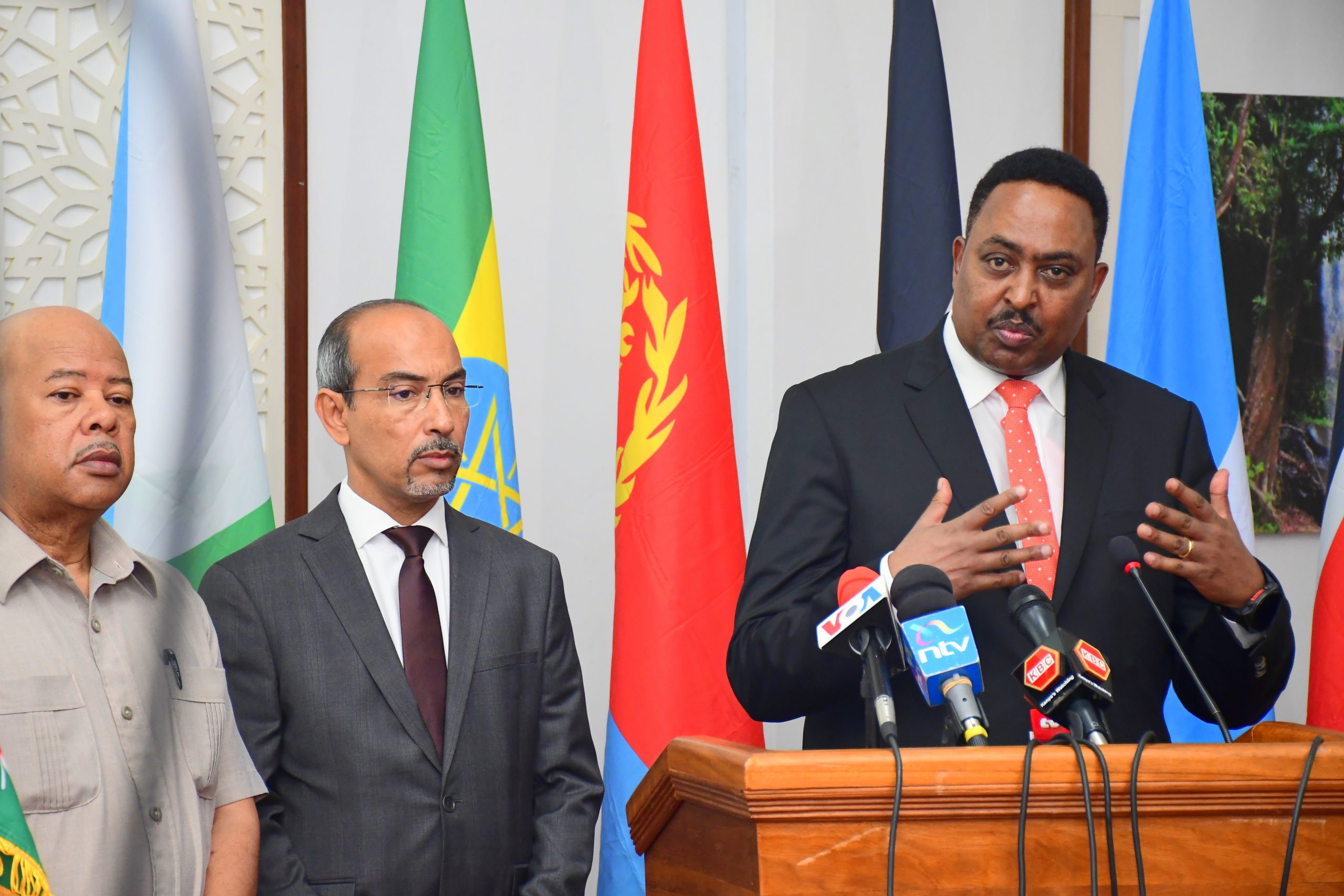
IGAD calls for shared solutions to sort security threats – KBC
The Intergovernmental Authority on Development Security Sector Programme (IGAD SSP) has kicked off its high-level regional forum on the IGAD regional cooperation and coordination mechanism (RCCM) against transnational security threats, statute, and operationalization.
The objective of the two-days meeting of ambassadors and committee of member states is to deliberate on how to address transnational security threats and engage law enforcement agencies and the criminal justice sector against crime and come up with joint responses.
Some of the challenges that IGAD member states are facing include threats of terrorism, human trafficking, cyber-crimes, and illegal arms trade which have destroyed lives and weakened economies and tested the resilience of the nations.
Addressing the media in Mombasa, IGAD Executive Secretary Workneh Gebeyehu said there is a growing prevalence of organized crimes, with reported incidents rising by 30 percent in recent years, a stark reminder of what is at stake.
He said the annual cybersecurity report estimates that the global cyber-crime economy is valued at 9.5 trillion dollars a year and 793 billion USD a month in 2024 highlighting the scale of challenges that must be confronted together.
“This is why this regional cooperation and coordination mechanism against transnational threats is so important. It is not just another mechanism but our commitment to working together to confront these threats head-on,” he said.
He noted that building on the foundation laid by IGAD’s Security Sector Program, the mechanism is designed to enable member states to share intelligence more effectively, harmonize legal frameworks, and strengthen capacity to respond to threats as a unified region.
He added that several strides have already been made for example IGAD’s conventions on Mutual Legal Assistance and Extradition, though awaiting broader ratification, have set the groundwork for legal coordination across borders.
The Executive Secretary noted that the establishment of the IGAD Criminal Information System (ICIS) promises to revolutionize how we collect and share intelligence, making our responses faster and more effective.
Additionally, he said the capacity building workshops held since 2014 have equipped over 2000 of member states’ security professionals with the skills needed to tackle the complex challenges.
“We should also acknowledge the obstacles we face. Let conventions remain to be ratified, and resource limitations continue to slow our progress. These challenges present opportunities to strengthen our resolve and deepen our partnerships while building on multilateral approaches to,” he added.
He urged member states to act swiftly in ratifying and domesticating the statute.
He said they must also empower national focal points, ensuring they have the resources and authority to act effectively.
He called upon member states to commit to fully utilizing the tools provided by IGAD statute for establishment of cooperation and coordination mechanisms against transnational security threats and frameworks for joint planning and operations for the mechanism to become a force for real and measurable change.
He noted that IGAD is looking ahead into having a region where the shared security challenges are met with shared solutions; where criminal networks are dismantled through coordinated intelligence, where regional cooperation becomes a model for the world to follow.
“Let us also remember that true security comes not just from our governments but from our communities, civil societies, local leaders and citizens all have a role to play in creating the kind of region we aspire to,” he added.
He said the regional cooperation and coordination mechanism against transnational security threats and its accompanying statute is a blueprint for a safer, stronger, and more united IGAD region.
“A blueprint is only as good as the will to bring it to life. Let us ensure that this framework leads to tangible results. Let us work hand in hand to create a legacy of peace, resilience, and hope for generations to come,” said Gebeyehu.
